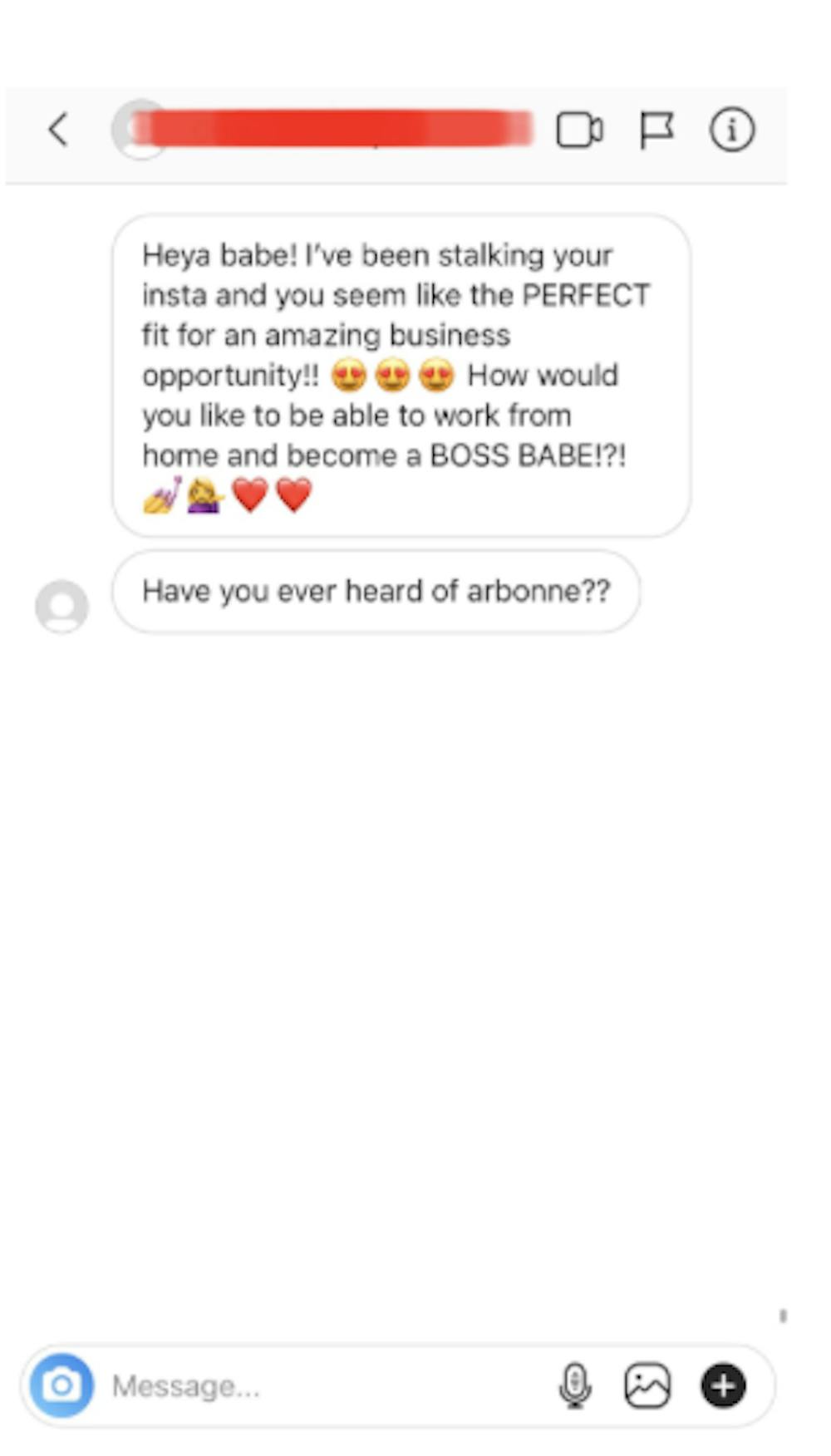Recently, I received this fantastic business opportunity:

If you have been on social media at all in the past few months, the chances are that you have received a similarly fantastic business opportunity. Throughout the pandemic, almost every single woman that I know has been asked to become a “boss babe”’ and join a multi–level marketing scheme.
To those unfamiliar with them, multi–level marketing schemes, or MLMS, are businesses which rely on the recruitment of new members to make profits for those who are higher up on the chain. If you think that this sounds a lot like a pyramid scheme, that’s because it is. However, sellers will be quick to assure you that MLMs are 100% legitimate and legal, as not only do they sell a product, but representatives are “guaranteed” to make money from their sales. Presented in this way, MLMs can seem attractive— the company gets to sell its products through individual vendors, vendors earn some commission from their sales, and consumers get their products. But the truth is far more depressing. In fact, a whopping 99% of direct sellers end up losing money instead of gaining a profit.
MLMs initially began to gain popularity in the 1940s, when companies such as Nutrilite started to encourage the selling of their vitamins through “distributing teams” allowing employees to earn money by hiring sellers and taking a cut of the seller’s profits.
In the late 2000s and early 2010s, however, their popularity skyrocketed, with the internet allowing companies to reach a much bigger audience. The “Hey babe, you seem like the perfect fit for an amazing business opportunity!!” message that I received is exactly how recruitment usually begins. This process usually ends with having to fork out an absurd amount of your own money to buy expensive starter kits or products to sell to your friends and family, until you’re knee–deep in leggings, make–up, haircare and whatever else you’ve been persuaded to sell.
When MLMs first gained significant traction, their primary victims were middle–aged suburban women, but recently a newer, younger target has emerged: college students. MLM companies have a knack for targeting any vulnerable group of people, single mothers, military wives and anyone who needs money such as the average student. It’s understandable why MLMs are starting to target younger people, but why exactly are so many young women joining them? One word: #Girlboss
These companies claim that to support female entrepreneurs and feminism in general, calling themselves ‘boss babes’ and ‘girl bosses’. MLMs use the idea of 'women supporting women' to build a customer base of 'empowered' representatives who they drain of money and hide behind the guise of feminism to justify exploitation. You can see this in action on pro–MLM Instagram accounts where they post cheesy messages such as the ever–popular ‘You have as many hours in the day as Beyonce’ or ‘1 year = 365 opportunities.’
The pandemic has disproportionately affected women, and lockdowns have increased isolation as well as mental health issues. MLMs and the surrounding girl boss culture offer a solution: improve your mindset, join a community of like–minded entrepreneurial women and make some extra money. However, this narrative is a lie. The only people making money in an MLM are the few at the top, and the majority of the profit that they make comes from the distributors, not the product. The very same business model that claims to be in support of feminism is working against it.
But not all is bleak, although there is a growing number of people joining MLMs, the ‘Anti MLM’ movement is also on the rise to ensure that more and more people become aware of the dangers of MLMs. The page r/anti-MLM is devoted to debunking MLM myths and helping those who have fallen victim to their ploys. More and more people are speaking up about MLMs—a quick YouTube search provides pages of anti–MLM story times. The best way to beat the beast is to inform those closest to you and make sure that they don’t fall prey to an MLM.

